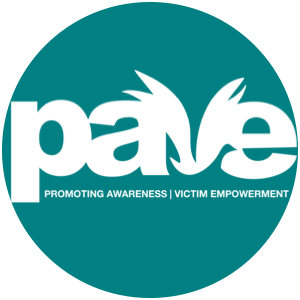OCD & Sexual Assault
TW: sexual assault, mental illness, body image
“Obsessive-compulsive disorder (OCD) is a disorder in which people have recurring, unwanted thoughts, ideas or sensations (obsessions). To get rid of the thoughts, they feel driven to do something repetitively (compulsions). The repetitive behaviors, such as hand washing/cleaning, checking on things, and mental acts like (counting) or other activities, can significantly interfere with a person’s daily activities and social interactions” (What Is Obsessive-Compulsive Disorder?, n.d.).
That is a dictionary definition of OCD. As someone who studied psychology in high school and college, I’ve learned about OCD time and time again. I always knew that compulsions were the repetitive behaviors caused by obsessions. I knew the stereotypes of being a clean freak or super organized and uptight. Yet, I didn’t understand the reality of this disorder until I was diagnosed with it.
In my own words, my OCD gives me unwanted and intrusive thoughts (obsessions), and the only way I can get rid of these thoughts is through repetitive actions (compulsions). While this can be as harmless as feeling the need to wash my hands twice every night before bed, my OCD has become my enemy. It’s isolating and painful. It feels hard to understand. It can feel like I’m trapped in my brain, and I can’t escape.
According to Murayama et al. (2020), experiencing stressful life events and/or trauma often causes the onset of OCD. The authors explain, “to comprehend the pathophysiology of OCD, it is important to understand the stressful life events that precede its onset.” The severity of one’s OCD symptoms varies depending on the level of maltreatment one has faced.
Further, research shows a relationship between OCD and experiencing sexual assault (Bhattacharya & Midha Sharan, 2022). The authors explain that experiencing sexual assault can interfere with normal development and increase vulnerability to anxiety disorders, such as OCD.
The relationship between OCD and experiencing sexual assault manifests in different ways.
It may be that experiencing sexual assault has made you hyperaware of your surroundings, or that you desire the immediate comfort that comes from rituals. Sometimes, you may not even recognize that intrusive thoughts and behavior patterns are a result of trauma. You may just feel uneasy with these thoughts or even guilty for thinking them.
Having OCD as a survivor has impacted my relationship with my body. Sexual assault is a violation of your autonomy, so it’s natural to feel uncomfortable in your body. In the same way that some may experience a compulsion to check on things, every time I sense the slightest change in my body, I feel the need to point it out or fix it. My compulsions, in this sense, can be mental or physical—I look at myself in the mirror more, or I try to problem-solve how I can “go back to normal.”
My trauma has also impacted my relationship with emotional and physical intimacy. Reassurance is a common compulsion in all individuals with OCD; in order to neutralize unwanted thoughts, you may seek reassurance from yourself and others close to you (Haciomeroglu, 2020). Moreover, it’s normal for survivors to seek reassurance to feel comfortable with emotional intimacy. For me, experiencing manipulation and emotional abuse has led to doubt and overthinking, obsessions that my partner is going to break up with me, or that my partner is upset with me. This leads to compulsions of needing reassurance, and a lot of it.
In terms of physical intimacy, experiencing intrusive thoughts during intimate moments can be irritating, confusing, and embarrassing. These thoughts may affect your sex drive or cause you to avoid intimacy altogether (Lawrenz & Barkley, 2022).
All of this is to say—your thoughts are normal. They may not be wanted, but they’re present… and that’s okay. It’s normal to want to fight these urges or suppress them, but I believe that to grow, it’s important to work with them. Be mindful of these thoughts. Sit with the discomfort. Push yourself to recognize that although your brain tells you otherwise, you are safe now. You are okay now.
For those coping with OCD, I’ve attached the following resources:
Survivors.org (Tag: “Therapy”)
@mi_therapist on Instagram
@chronicallyeverafter on Instagram
@revkunsbeyondocd on Instagram
Bhattacharya, M., & Midha Sharan, A. (2022). Relationship of Childhood Sexual Abuse with Obsessive Compulsive Disorder During Adulthood. Journal of Positive School Psychology, 6(2), 4479-4491.
Haciomeroglu, B. (2020). The role of reassurance seeking in obsessive compulsive disorder: the associations between reassurance seeking, dysfunctional beliefs, negative emotions, and obsessive-compulsive symptoms. BMC psychiatry, 20(1), 356.
Lawrenz, L., & Barkley, S. (2022, August 31). OCD And Sex: Can OCD Affect Your Sex Life? Psych Central.
Murayama, K., Nakao, T., Ohno, A., Tsuruta, S., Tomiyama, H., Hasuzawa, S., Mizobe, T., Kato, K., & Kanba, S. (2020). Impacts of Stressful Life Events and Traumatic Experiences on Onset of Obsessive-Compulsive Disorder. Frontiers in psychiatry, 11.
What Is Obsessive-Compulsive Disorder? (n.d.). American Psychiatric Association.
Written by: Spring 2023 Intern Jessica Katz
